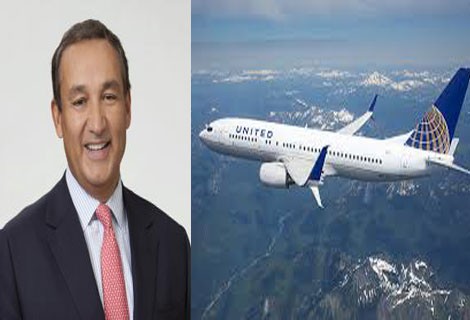The board of United Airlines has announced their plans to reach a decision concerning the future of the company following the sudden hospitalization of CEO Oscar Munoz who suffered a heart attack on Thursday.
The board of directors was divided last week whether to appoint an interim CEO or to start shopping for a new man to lead the organization.
"The company anticipates it will today conclude the corporate governance process necessitated by the hospitalization of President and CEO, Oscar Munoz," Chairman Henry L. Meyer III said in a statement Monday. "The company expects to release more details either later today or tomorrow. In the meantime, the United family's thoughts and well-wishes are with Oscar."
The board of directors is not fully apprised of 56-year-old Munoz's present condition, and this casts some doubts about their ability to handle things in his absence - considering the fact that he was only hired last month. Munoz used to be the president of CSX Corp., a railroad company, but he was plucked to run United Continental Holdings following the shameful exit of former CEO Jeff Smisek.
Munoz since his appointed as CEO had been trying aggressively to ramp up the image of United with employees and customers, and had been meeting with trade unions to iron out issues while also dealing with computer glitches among other company issues aimed at restoring the glory of the airline.
United was merged with Continental Airlines in 2010 and had been the butt of a series of problems ever since, with customers and employees complaining about almost everything the company stands for; but Munoz had been working hard to straighten things out - and even scheduled meet with union leaders before he collapsed and rushed off to hospital on Thursday.
The company's stock rose 0.4% to $56.20 at 10:02 a.m. in New York; and the stock's 16% drop this year through Friday lags behind the Bloomberg U.S. Airlines Index, which is down 5.8%.
But then corporate-governance experts continue to find fault with the United board, saying they ought to fully know Munoz's condition and ought to have disclosed his hospitalization immediately, not a day after.
"They needed to remain in front of the information," Laura Pincus Hartman, a business ethics professor at Boston University Questrom School of Business, said in a telephone interview last week. "Otherwise, aren't we left with the perception no one is in charge?"



























